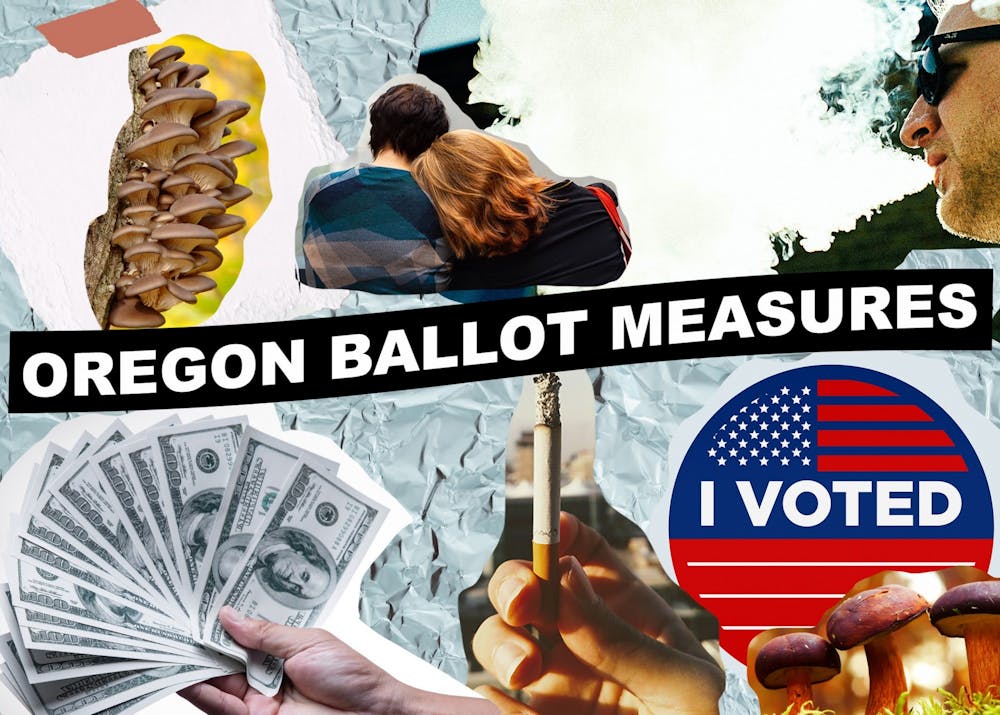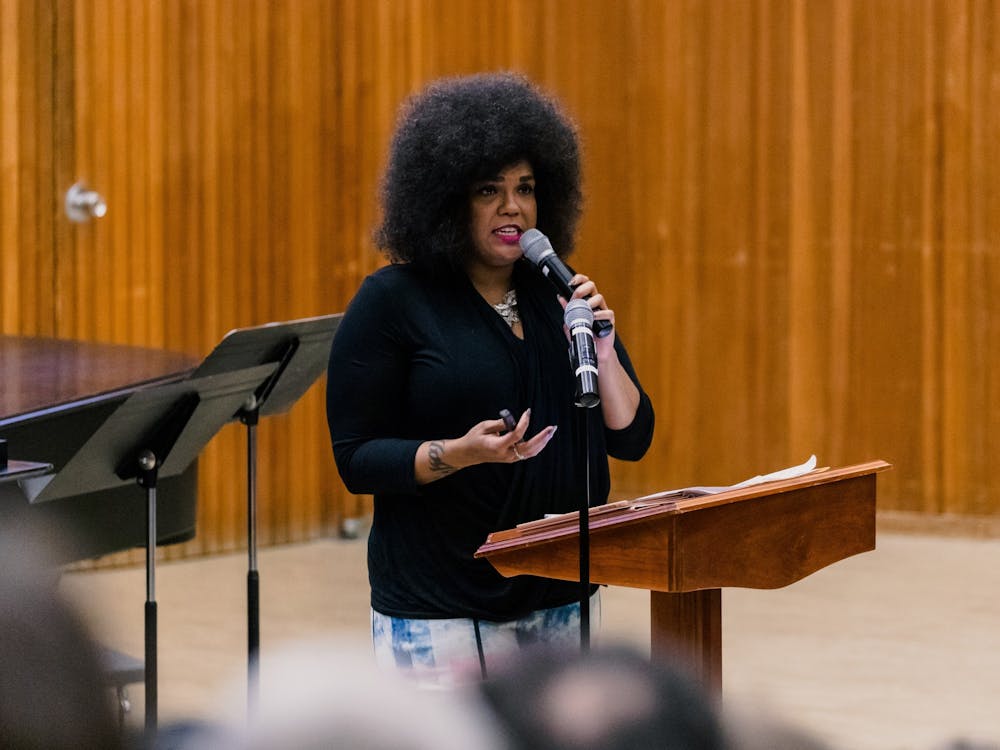As the nation soaks in the results of the nail biting presidential election last week, more local aspects of election night can easily be overlooked. As the eyes of the American people were glued on a map of electoral votes, state and local governments were preparing to implement new regulations.
Last week, Oregon passed four measures, covering political campaign funds and transparency, cigarette and nicotine taxes, psilocybin and the decriminalization of the possession of some drugs.
Measure 107: Allows laws limiting political campaign contributions and expenditures, requiring disclosure of political campaign contributions and expenditures, and requiring political campaign advertisements to identify who paid for them.
This measure amended a section of the state constitution to allow explicit laws to be made regarding political campaign contributions. This measure overturned a 1977 Oregon Supreme Court case that contended against limited campaign funding under the argument that contributing to a campaign fell under free speech. This measure advocates for more transparency in campaign funding as well as limiting contributions, as Oregon campaigns have become increasingly more expensive.
Measure 108: Increases cigarette and cigar taxes. Establishes tax on e-cigarettes and nicotine vaping devices. Funds health programs.
This measure increases the tax of cigarettes, raising the cost of each pack by $2. The tax being imposed on e-cigarettes and other nicotine devices is a new tax; however, tobacco cessation products that are approved by the Food and Drug Administration (FDA) are not subject to these new taxes. The revenue from these new taxes will go to the Oregon Health Authority (OHA) for various health programs.
As a growing number of students are vaping, some students will spend an increasing amount of money on vape and nicotine products due to the new 65% tax.
Measure 109: Allows manufacture, delivery, administration of psilocybin at supervised, licensed facilities; imposes two-year development period.
This measure allows for the use of psilocybin, the psychedelic found in hallucinogenic mushrooms. The use of this drug is not legalized in all cases, but under the supervision of licensed facilities as a therapeutic use. This measure legalizes psilocybin at the state level exclusively, not federal.
Psilocybin can help patients who are struggling with anxiety, depression, addiction, PTSD and other chronic health issues. This measure gives OHA, advised by an Oregon Psilocybin Advisory Board, two years to create a therapy program as well as regulations for administration of the drug.
Arguments in favor of this measure point out how this drug can provide a new form of therapy that could be more effective for some people by putting the patient in a more mentally open state.
Measure 110: Provides statewide addiction/recovery services; marijuana taxes partially finance; reclassifies possession/penalties for specified drugs.
Oregon stands out as a result of this measure as it is now the first state to decriminalize drug possession. The measure decriminalizes the possession of small amounts of hard drugs such as cocaine and heroin. The measure also reduces the penalties for larger possessions of these drugs.
In decriminalizing the possession of small amounts of hard drugs, people caught with small amounts of hard drugs must pay up to a $100 fine and complete a health assessment. While this measure reduces fines for possession, it does not decriminalize the distribution of drugs.
The aim is to take revenue from the marijuana tax and reallocate some of that towards an addiction recovery program. This could be a great service to those struggling with addiction, as it takes these individuals out of the criminal justice system while providing a structured path for rehabilitation.
Students can be greatly helped by this measure. College students make up one of the largest groups of people that struggle with addiction. Students who may be struggling with addiction now have easier access to rehabilitation resources.
With the presidential race stealing a majority of people’s attention, it is important to still be aware of the measures being passed and the impacts and significance they have on the wider community.
Laura Heffernan is a reporter for The Beacon. She can be reached at hefferna23@up.edu.








